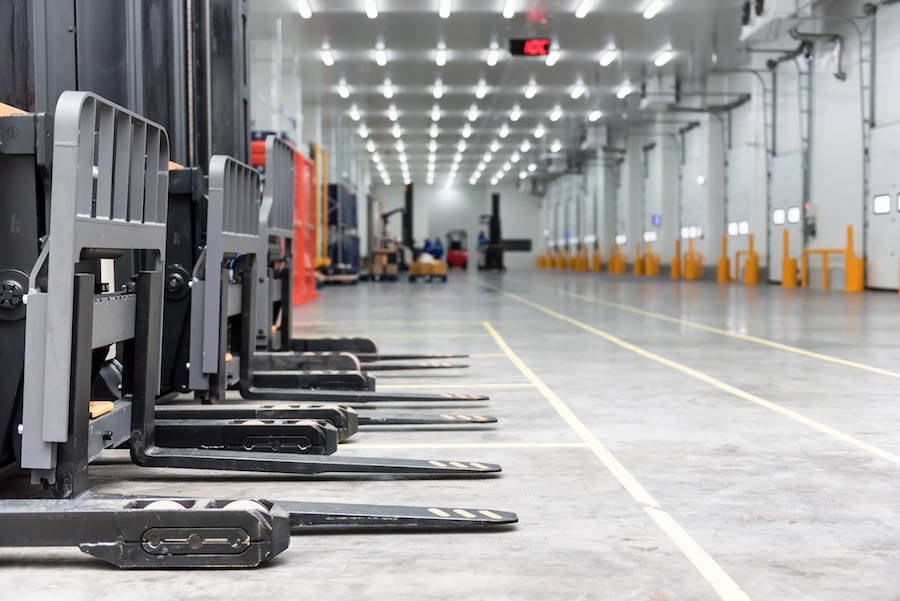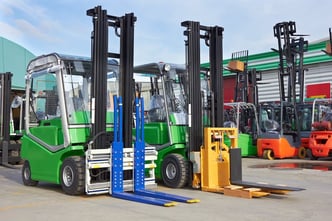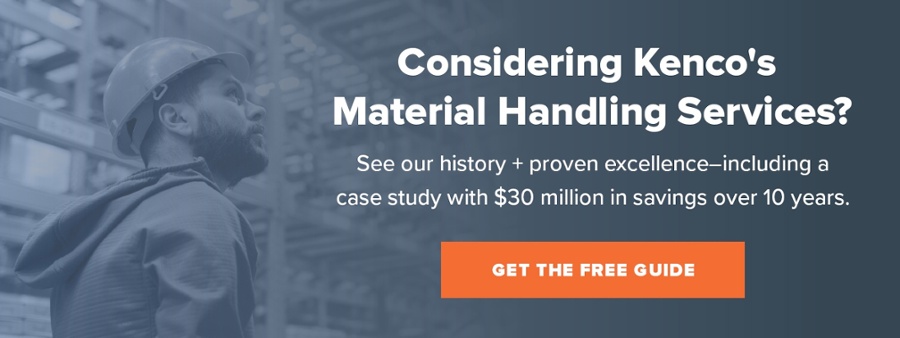
Material handling equipment is the backbone of any logistics operation, but to many companies, it’s only an afterthought. There's a prevailing attitude of "we'll get more if we need them" rather than a concentration on maintenance and smart, proactive expansion.
Unsurprisingly, being reactive to your MHE needs results in unnecessary costs in an industry where lean conquers all—but the company that devotes time and attention to their MHE fleet is a company with more revenue to show for it.
Are You Handling Your MHE Fleet Efficiently?
Determining the status of your company's MHE fleet might not be a comfortable exercise if you've put it off, but it's a crucial line item on your to-do list. Don't be surprised to uncover the unexpected—a broken machine rigged to work, a model that's been quietly shelved after a breakdown, stopgap measures that require labor-intensive bridging between your team and outdated tech. Beyond an immediate snapshot of where your fleet stands, a little added care and attention goes a long way: there may have been a recall on a mechanism or a new software update on equipment with onboard computers.
Once you get through determining your current MHE status, keep the future in mind as well. Schedule regular assessments, even if they're informal check-ins with floor management.
Staying proactive about changes or potential problems with your material handling equipment will ensure that no unpleasant surprises crop up in the middle of a busy season for your warehouse.
A planned upgrade often carries a much lower price tag than an absence-driven, time-sensitive one.
Are You Using the Right MHE Acquisition Method?
There are three main options for procuring material handling equipment: buying, renting, and leasing. These methods can be intermingled to balance demand and budget availability as needed, but flexibility will fluctuate depending on which route you pursue.
 Leasing equipment, much like leasing a car, provides a steady expense over time with the requirement of a contract, typically drawn up for longer periods of time—years, rather than months. This is a smart choice for companies that anticipate needing MHE for ongoing operations, rather than those that deal with seasonal or event-based volume fluctuations. It offers a predictable cost, access to newer MHE models, updated technology, and typically some support for repairing or replacing damaged or malfunctioning units.
Leasing equipment, much like leasing a car, provides a steady expense over time with the requirement of a contract, typically drawn up for longer periods of time—years, rather than months. This is a smart choice for companies that anticipate needing MHE for ongoing operations, rather than those that deal with seasonal or event-based volume fluctuations. It offers a predictable cost, access to newer MHE models, updated technology, and typically some support for repairing or replacing damaged or malfunctioning units.
Alternately, while buying equipment outright might seem like a logical move for the same company with ongoing needs, it can be a time bomb. As equipment ages and maintenance needs grow, the initial "low" price of acquisition starts ticking upwards again. Even outside of the costs directly associated with that physical equipment aging, opportunity costs—pick/pack speed, movement speed out on the floor, technically-advanced capabilities—start to pile up as well.
Finally, renting may seem like the best of both worlds, but the trade-off for avoiding a long-term contract is a higher price. Renting makes sense when your operational needs are likely to change in response to your market's demand: in this case, the opportunity cost of immediate acquisition is typically worth the additional cost. If you have long-term insight, however, leasing is worth a longer look.
An important note: lease terminations or renewals should be handled with the same careful consideration as lease origination. Don't leave "loose ends" in terms of verifying equipment status before returning equipment—transparency and documentation are key.
What is Your MHE Plan of Action?
To use your equipment in an effective and cost-efficient manner, you need two important pieces of information: operational data and visibility. Direct your team to keep meticulous records on equipment usage—everything from copies of purchase, lease, or rental agreements to hours in use and repair spend. You'll need these numbers to determine the actual cost you're paying per hour for each machine; from there, you can make determinations on upgrades, scaling up, or scaling back.
For the best results, uniformity in MHE should be enforced whenever possible. When acquiring equipment of the same make and model, it simplifies maintenance and repair needs. Additionally, uniform units can be effectively rotated without the need for your warehouse team members to adjust to—or be trained on—a new model.
A Better Way to Tackle MHE Management
One of the best ways to tackle the often-thorny issue of obtaining and maintaining a full MHE fleet is through a partnership with a third party logistics provider, or 3PL. By outsourcing the most difficult aspects of the process, your company can concentrate on serving your customer base instead of determining if you have enough equipment, how to obtain more, and if you're making cost-effective moves or not. It's a smart partnership that will maximize productivity without needing to spend hours or days collecting and studying operational data.
Kenco is proud to offer these services to our clients, working hard to provide them with greater visibility and helping save up to 20% in costs over time through smart management of assets like material handling equipment. We also help by managing relationships with equipment manufacturers, extended 3PL networks, and even leasing partners. We'll help you not only reduce costs, but power consumption, equipment downtime, and hassle as well.
To Sum It Up
Need to know more about the best way to handle your MHE fleet more efficiently? Contact Kenco to discover how an experienced, client-focused 3PL can keep your MHE fleet in peak performance mode, and be sure to read our Material Handling eBook for additional professional insights.



